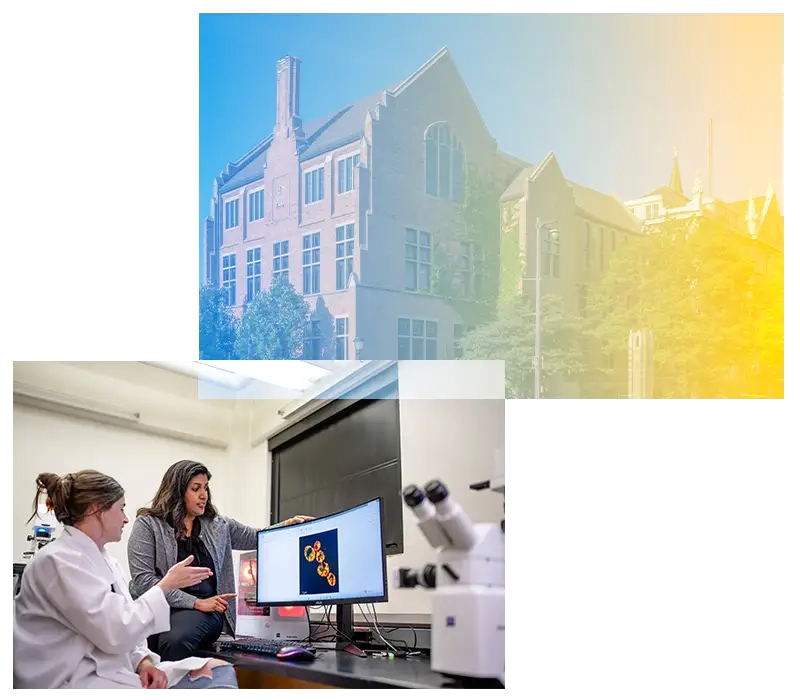Between the innermost workings of the nucleus and the outer edge of the visible universe lies the playground of physics. As a physics major, you’ll combine imagination with systematic reasoning to understand the laws of nature, the structure of matter and the behavior of physical processes.
Here, you'll actively apply what you learn through hands-on research, collaborative projects and innovative problem-solving sessions that challenge the way you think. Plus, internships and service-learning projects will complement your studies, enhance your resume and give you real-world experience. Whether it’s working on groundbreaking research with faculty or participating in cutting-edge experiments, you’ll have the resources and support to explore your passions and prepare for a future where you can truly make a difference.

Sensenbrenner Hall, College of Arts and Sciences
The ability to make significant positive change in the world requires knowing more than one area well. And since our College of Arts and Sciences is the most academically diverse college on campus, we're the perfect place to prepare for your role as a changemaker. So broaden your expertise by adding at least one additional major or minor to your degree — 73% of our students do.
The physics major is excellent preparation for graduate, medical, dental and law schools; industrial or government research and development; and teaching. Here’s where some of our graduates have landed.

While you’re here at Marquette, preparing you for what’s next will be one of our top priorities. So, expect lots of learning by doing, connecting with others who share your passions, and reflecting on how you can Be The Difference.
As a physics major, you'll have lots of career options. Help decide the direction you'll take — and get valuable professional experience — with an internship. Internships can include working in a variety of professional settings in Milwaukee and nationwide. Our internship program is here to help you find the best option for you.
Discover more about Arts and Sciences internships.
You’ll have plenty of opportunities to follow your interests here, like volunteering with a faculty member whose research area intrigues you or completing your own independent study.
Here are some of the topics physics faculty and students are exploring now:
Become a people-centered leader guided by our Jesuit tradition. Join our E-Lead program sophomore year and you’ll complete a combination of leadership courses and experiences that prepare you to be the drivers of innovation for the common good. You’ll develop the skill set to generate innovative solutions and the mindset to reflect on the impact your work has on the world. Bonus: You’ll graduate with a concentration in leadership, too.
Explore our E-Lead program.
Expand your education with a semester abroad. Study program course work at prestigious universities around the world. Other international opportunities are available for physics students through core courses, summer study, language study, faculty-led programs or research.
Check out study abroad programs.
A Marquette education equips students to thrive professionally and personally through overall student support, career preparation and an extended family that can't wait to meet you. But don't just take our word for it.
Zippia.com
The Wall Street Journal
The Princeton Review (private universities)
